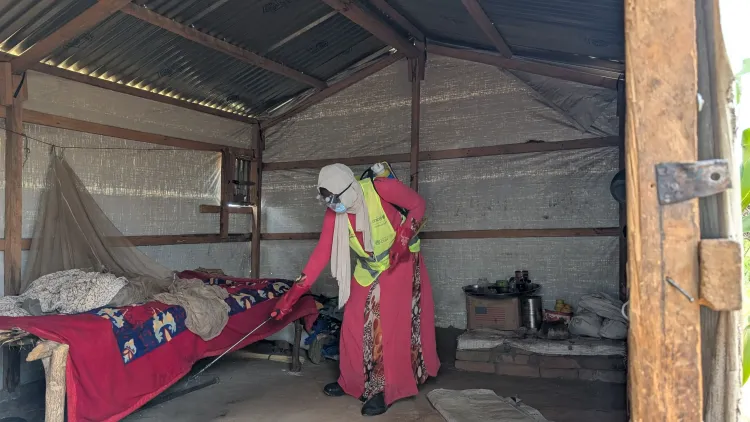How Many Lives Have Been Lost to Cholera in Chad?

Synopsis
Key Takeaways
- Cholera outbreak in Chad has led to 113 deaths.
- 1,631 suspected cases reported since July.
- Vaccination campaign underway with over 1 million doses.
- Importance of hygiene emphasized by authorities.
- Access to safe water is critical for prevention.
N'Djamena, Sep 6 (NationPress) The cholera outbreak in Chad, which began in July, has tragically claimed 113 lives, as reported by the Chadian health ministry.
So far, there have been 1,631 suspected cases recorded.
This information was disclosed during a meeting led by Public Health Minister Abdelmadjid Abderahim aimed at formulating strategies to mitigate the disease's spread.
As part of efforts to combat cholera, Chad has received 1,120,295 doses of cholera vaccine, which are currently being distributed in the eastern regions as part of a vaccination initiative.
The government has urged the citizens of Chad to adhere strictly to hygiene protocols to help prevent further infections.
The first case of cholera was identified on July 13 in the Dougui refugee camp located in the eastern Ouaddai region, which is home to around 20,000 Sudanese refugees.
The Africa Centres for Disease Control and Prevention warned earlier this month that cholera remains a significant public health issue across Africa, both in terms of cases and fatalities.
To date, 23 African countries affected by cholera have reported a combined total of 239,754 cases and over 5,274 deaths this year, according to reports from the Xinhua news agency.
The World Health Organization (WHO) states that cholera is a severe diarrheal infection caused by consuming food or water contaminated with the bacterium Vibrio cholerae. This disease poses a global health threat and reflects deep-seated inequalities and a lack of social and economic growth. Access to safe water, basic sanitation, and proper hygiene is crucial to preventing cholera and other waterborne diseases.
While many individuals with cholera experience mild to moderate diarrhea and can be treated with oral rehydration solutions (ORS), rapid progression of the disease necessitates prompt treatment to save lives. Severe cases require intravenous fluids, ORS, and antibiotics.
Countries must establish robust epidemiological and laboratory surveillance systems to quickly identify and respond to outbreaks.
Cholera outbreaks are common in certain nations, while others may go years without any cases. Factors such as conflict, population displacement, climate events like cyclones and floods, and insufficient investment in water, sanitation, and hygiene (WASH) services contribute to the persistence of cholera.
Reported cholera cases to the WHO have been on the rise in recent years. In 2023 alone, there were 535,321 cases and 4,007 deaths reported from 45 countries. The difference between these statistics and estimates by researchers is likely due to inadequate surveillance systems and unreported cases out of fear of repercussions on trade and tourism.








